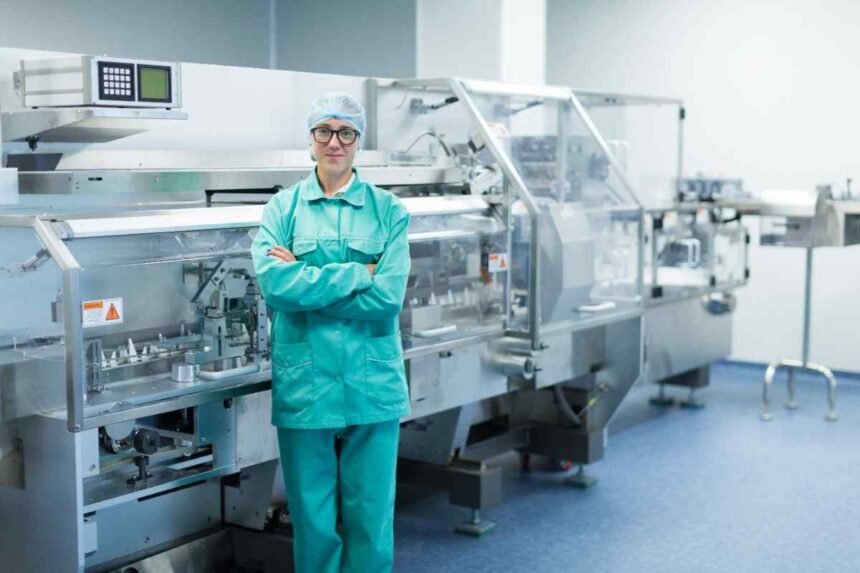What Is a Custom Odoo ERP for Medical Device Manufacturers and Why It’s Essential
A customised Odoo ERP is an enterprise resource planning system created especially to satisfy the particular operational, regulatory, and quality assurance needs of producers of medical devices. Industry-specific modules for design validation, component traceability, batch monitoring, and quality assurance are integrated into a tailored Odoo ERP, in contrast to conventional ERP systems. Businesses can function effectively while adhering to laws like FDA 21 CFR Part 820 and ISO 13485 thanks to this alignment. Within a centralised system, it optimises internal workflows from production to delivery.
The production of medical devices is a high-stakes sector where mistakes can have dire repercussions. Having a system that adjusts to your processes instead of the other way around is therefore essential. Through the use of an odoo customization service, manufacturers can apply capabilities such as electronic document management, part traceability, and automated quality control workflows that are tailored to their unique production environment. Custom modules provide unparalleled control and visibility while ensuring the system stays scalable as laws change and the company expands.
Key Functionalities to Expect from a Customized Odoo ERP Solution
End-to-End Inventory Traceability: Customized Odoo ERP allows complete traceability of raw materials and finished devices across the supply chain. This includes serial and lot tracking, barcode integration, and real-time inventory status updates. With this feature, manufacturers can quickly trace any defective batch, reducing the risk of regulatory penalties or product recalls. It ensures precise tracking from suppliers to final delivery, meeting strict compliance requirements.
Quality Control Automation: A tailored Odoo solution supports automated quality checks at every critical point in the manufacturing cycle. You can define control points, trigger inspections, and log non-conformance reports digitally. This ensures consistency in product quality and minimizes manual intervention, which reduces errors and improves accountability. Integration with reporting tools also helps in maintaining audit trails and compliance records.
Compliance Management Tools: Custom Odoo ERP includes modules to manage certifications, audits, and compliance documentation with ease. It supports medical regulations like FDA and ISO by automating recordkeeping, version control, and alerts for expired documents or licenses. This ensures continuous compliance without interrupting production, helping you stay audit-ready at all times.
Electronic Document Management System (EDMS): A customized EDMS in Odoo centralizes document storage for standard operating procedures, product specs, and training manuals. It ensures controlled access, version tracking, and digital approvals. This functionality enhances collaboration while securing intellectual property and helping meet documentation regulations.
Production Planning & Work Order Management: Odoo customization allows creation of tailored production flows with dynamic work orders. This functionality helps allocate resources effectively, reduce machine downtime, and maintain production schedules. It’s especially useful for medical devices that require multi-level assemblies and validation checks during production.
Integrated Warranty and Service Management: This feature allows manufacturers to manage warranties, returns, and repairs in an organized manner. A custom module can track product warranty status, service requests, and parts used in repairs, providing after-sales support that’s efficient and traceable. It also links with CRM and helpdesk tools for full visibility.
Core Operational Needs That Demand a Tailored ERP in Medical Device Manufacturing
Device Component Traceability: Manufacturers need to track every component used in medical devices for compliance and safety. A custom ERP allows serial and lot tracking across production, making recalls and audits efficient and reliable.
Regulatory Documentation Control: Managing FDA and ISO-required documents needs a tailored system that tracks revisions, approvals, and expiration. Odoo customization helps maintain validated records with digital signatures and audit trails.
Batch and Lot Production Management: Medical devices are often made in controlled batches. A customized Odoo ERP enables setting batch sizes, monitoring in-progress lots, and recording deviations all critical for regulatory compliance.
Controlled Quality Gateways: Critical quality checkpoints must be built into production. Tailored ERP modules enable automated inspections, dynamic checklists, and rejection protocols based on medical-grade standards.
Multi-level Bill of Materials (BoM): Complex medical devices often have multi-layer BoMs. A customized solution can manage sub-assemblies and their versioning, ensuring product consistency and accuracy in manufacturing.
Recall Readiness and Reporting: In case of a defect, quick product recalls are essential. A tailored ERP offers detailed reports and traceability logs to isolate affected units immediately, protecting both patients and reputation.
Audit and Validation Readiness: Manufacturers must be ready for surprise audits. Customized ERP features like automated logs, approval workflows, and validation tracking help stay audit-ready and reduce compliance risks.
Challenges in Medical Device Manufacturing That Off-the-Shelf ERP Systems Fail to Address
Lack of Industry-Specific Compliance Tools: Generic ERPs lack built-in support for FDA 21 CFR and ISO 13485 compliance. This leads to manual tracking of records, increasing the risk of errors and regulatory issues.
Inadequate Traceability Mechanisms: Standard ERPs fail to provide deep traceability down to component and batch levels, which is a non-negotiable need in medical device production.
Poor Adaptability to Complex BoMs: Off-the-shelf systems struggle with multi-level or configurable BoMs typical in medical device manufacturing, leading to production delays or errors.
Limited Quality Management Integration: Generic solutions lack automated quality checkpoints and inspection workflows. This compromises product consistency and puts compliance at risk.
Document Management Gaps: Basic ERPs don’t support strict version control, digital signatures, or audit trails required for technical files, SOPs, and compliance records.
Insufficient Custom Workflow Automation: Medical device manufacturing requires strict process adherence. General ERPs often fail to customize workflows like approvals, escalations, and CAPA (Corrective and Preventive Actions).
Scalability Constraints: As the business grows, general ERP systems often lack the flexibility to scale with evolving compliance rules and operational demands unique to medical devices.
Why Partnering with an Odoo ERP Expert for Customization Maximizes Long-Term ROI
A one-size-fits-all ERP is unable to meet the precision, quality, and compliance requirements of the medical device manufacturing industry. By spending money on customisation, you can make sure that your ERP system accurately represents your production dynamics, regulatory workflow, and operational structure. A bespoke Odoo ERP serves as a centralised control hub, guaranteeing that every step is trackable, validated, and auditable, from device history records to validation procedures. Better data openness, increased industrial agility, and more efficient reporting are the outcomes of this degree of synchronisation.
Whether your goal is greater inventory visibility, audit readiness, or speedier production planning, you may develop modules around it by partnering with a specialised vendor that offers odoo customization services. Through the development of a flexible, modular architecture, experts assist you in avoiding expensive workarounds and future-proofing your ERP. Over time, this not only increases productivity but also lowers operational risk, guaranteeing a long-term return on your ERP investment through quicker scalability and more informed decision-making.








